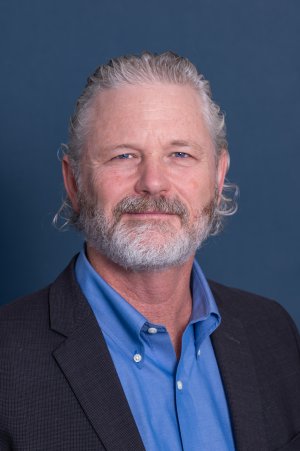Building upon years of success, Old Dominion University’s Office of Research adopts a center of centers model.
Old Dominion University’s Office of Research has established the Office of Enterprise Research and Innovation (OERI), unifying the University’s research centers and creating a well-defined collection of enterprise research capabilities.
The OERI is led by Eric Weisel, senior associate vice president for enterprise research and innovation, whose broad oversight allows the University’s research centers to focus on their individual areas of expertise and expand their impact.
“These research units are central to the University’s research growth model and depict the multilayered tapestry of ODU’s secure and public research infrastructure,” said Weisel. “The OERI’s organizational structure illustrates our continued support of the University’s longstanding goal to invest in and grow nationally impactful research concentrations organized into research institutes and centers.”
Weisel brings experience and insights in enterprise research advancement to the office, having served as executive director for ODU’s Virginia Modeling, Analysis, and Simulation Center (VMASC) from 2017 to 2023.
“Under Weisel’s leadership, VMASC grew as a global leader in modeling and simulation,” said Ken Fridley, vice president for research and interim dean of the Batten College of Engineering and Technology. “The center’s continued success underscored the unique value of unifying research and commercial products.”
VMASC, celebrating 27 years of proven success and growth, will continue to embrace its status as a global leader in computational analytics, modeling and simulation. The center offers a preview of what the OERI hopes to achieve at a university and industry level for all research entities.
“What we have done is capitalize on VMASC’s experience to organize the OERI to match the way we have been doing business for years,” said Weisel. “This structure arranges our senior leadership to better support researchers, reduces our daily managerial load and supports the OERI and its institutes and centers.”
The OERI’s center of centers model facilitates multidisciplinary opportunities for students, fosters greater collaboration among researchers, realigns research efforts with the ODU brand and enhances the opportunity to share center resources.
Research centers and institutes supported by the OERI are:
- The Virginia Modeling and Simulation Center (VMASC), ODU’s longstanding center of excellence in modeling, simulation and analysis.
- The Center for Secure and Intelligent Critical Systems (CSICS), which is involved with both fundamental and applied research in the areas of Trustworthy Artificial Intelligence, Secure and Intelligent NextG Infrastructure and Critical Infrastructure Resilience Metrics.
- The Virginia Institute for Spaceflight and Autonomy (VISA), which aims to create interdisciplinary research opportunities that grow the spaceflight and autonomous systems industry.
- The Virginia Digital Maritime Center (VDMC), which combines the capabilities of ODU’s very successful Maritime Industrial Base Ecosystem and Digital Ship programs into an interdisciplinary research center supporting Virginia’s maritime enterprise to advance the maritime workforce, foster collaborative partnerships and drive economic growth in Hampton Roads.
- The Center for Mission Engineering (CME), which is focused on cutting-edge research in designing, analyzing, integrating and improving the ability of engineered systems to deliver desired effects.
- The Institute for Coastal Adaptation and Resilience (ICAR), which advances the practice of coastal resilience and adaptation by engaging with communities, organizations and businesses to develop and deploy solutions based on integrated, innovative and applied research.
The OERI also manages a robust portfolio of contracts and leads the University’s engagement in several formal partnerships such as the Systems Engineering Research Center (SERC), a 22-university Department of Defense (DoD) University Affiliate Research Center. Partnership with the SERC provides ODU faculty a pathway to collaborate with researchers at other SERC universities and allows opportunities for the University to complete contract work with the DoD and other federal agency sponsors.
“The Office also serves as an advocate,” said Weisel. “Helping our research institutes and centers raise awareness and increase engagement opportunities, both internally and externally. This work also includes close collaboration with government relations on legislative initiatives.”




